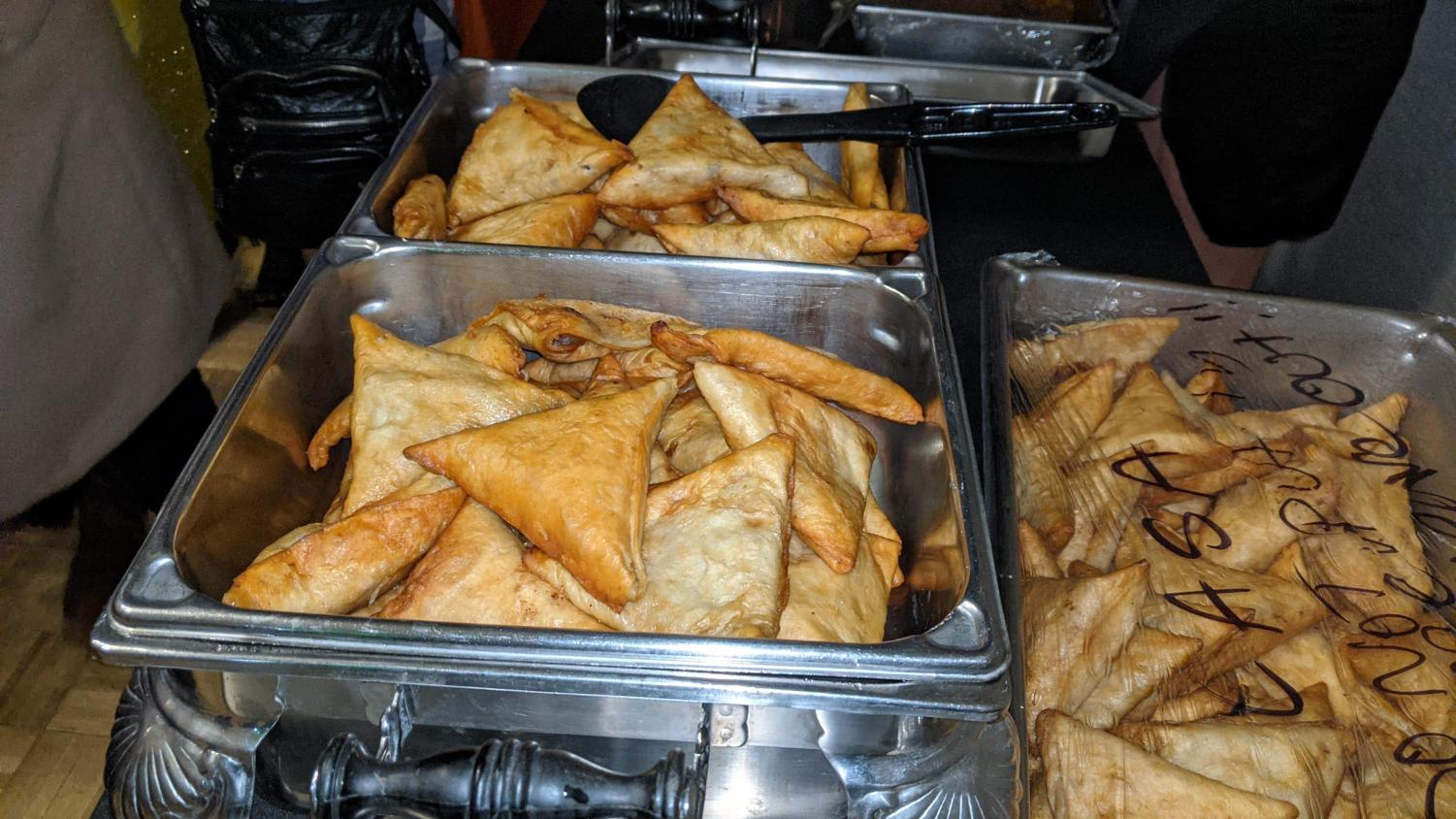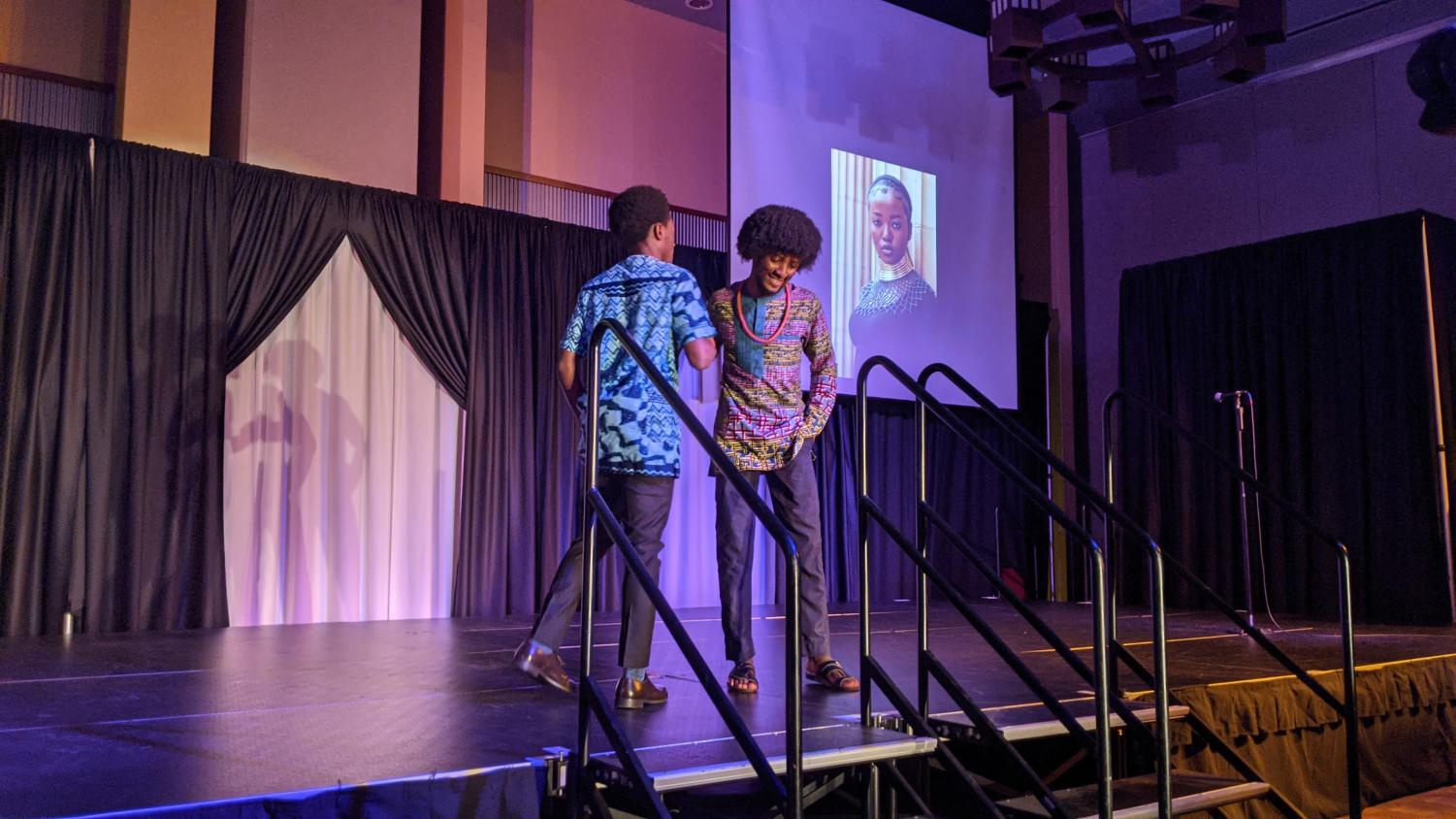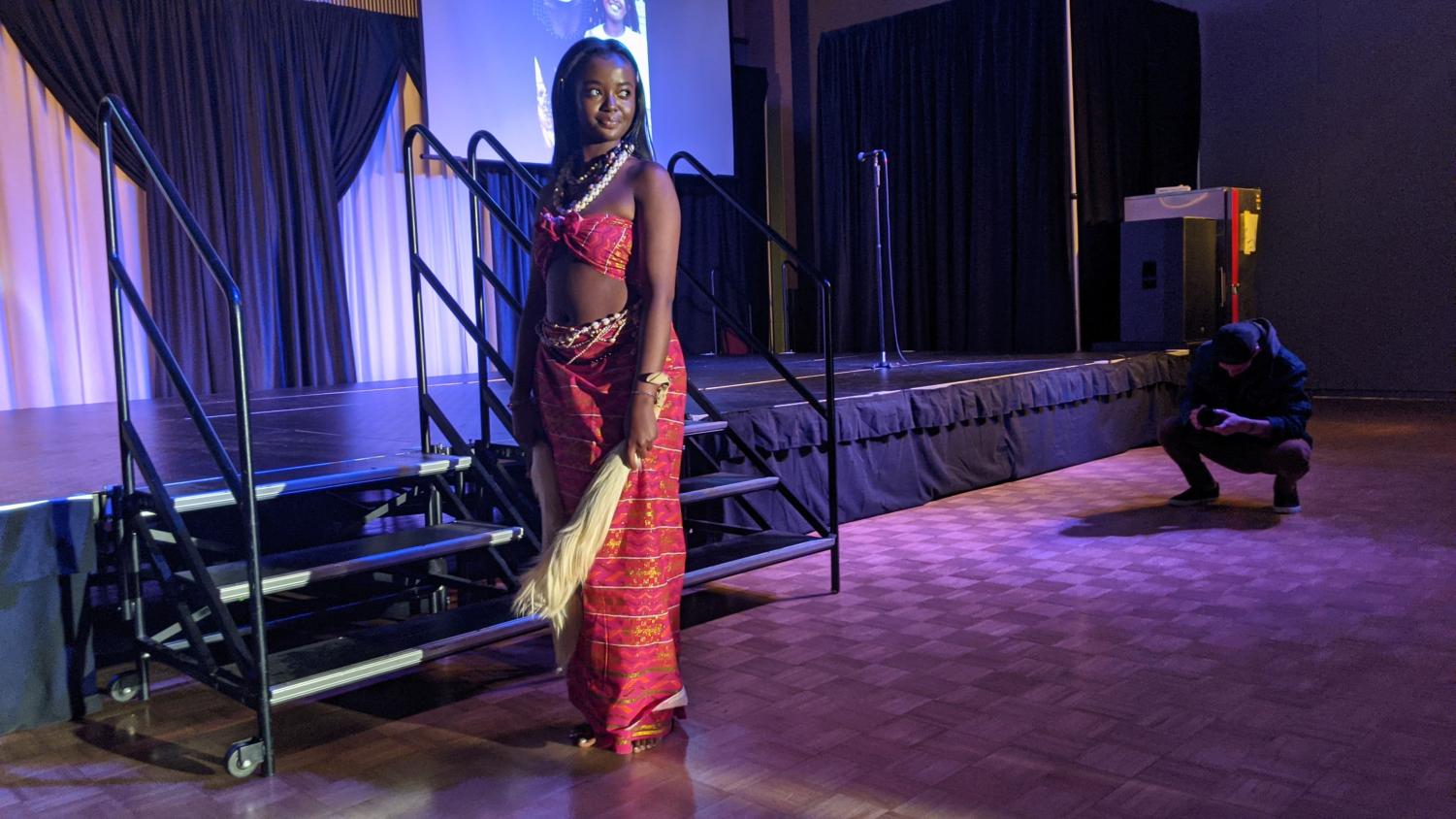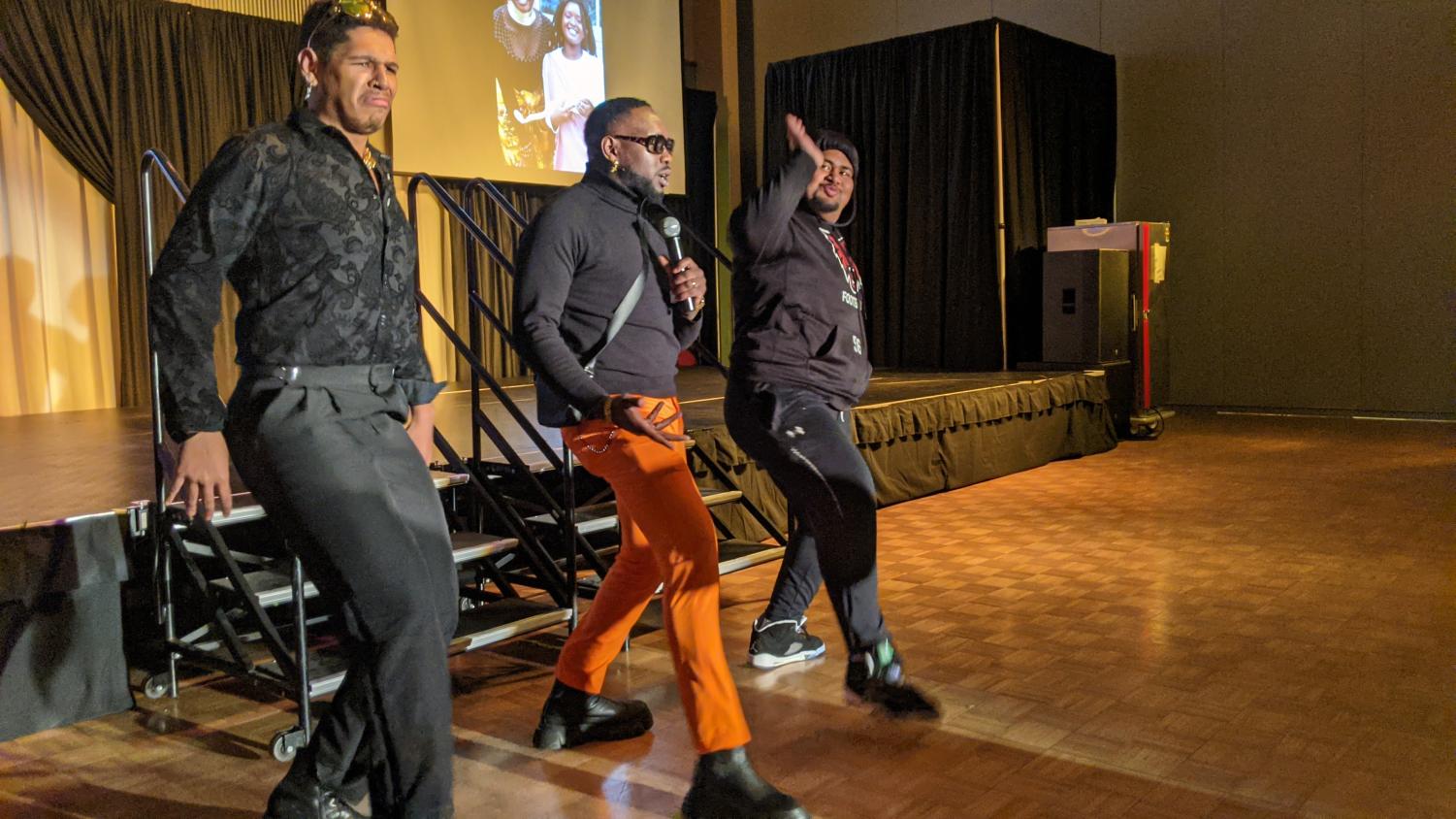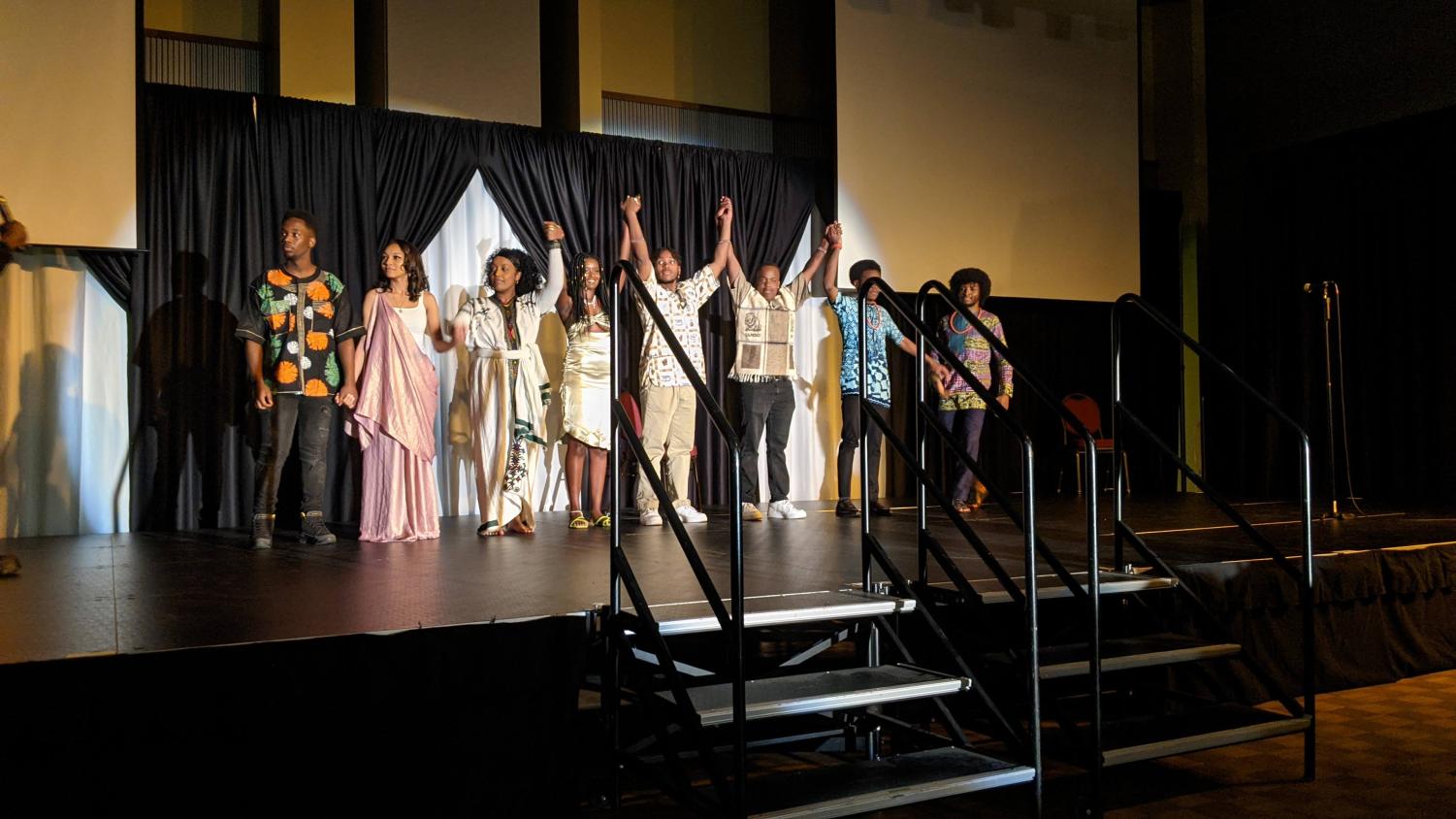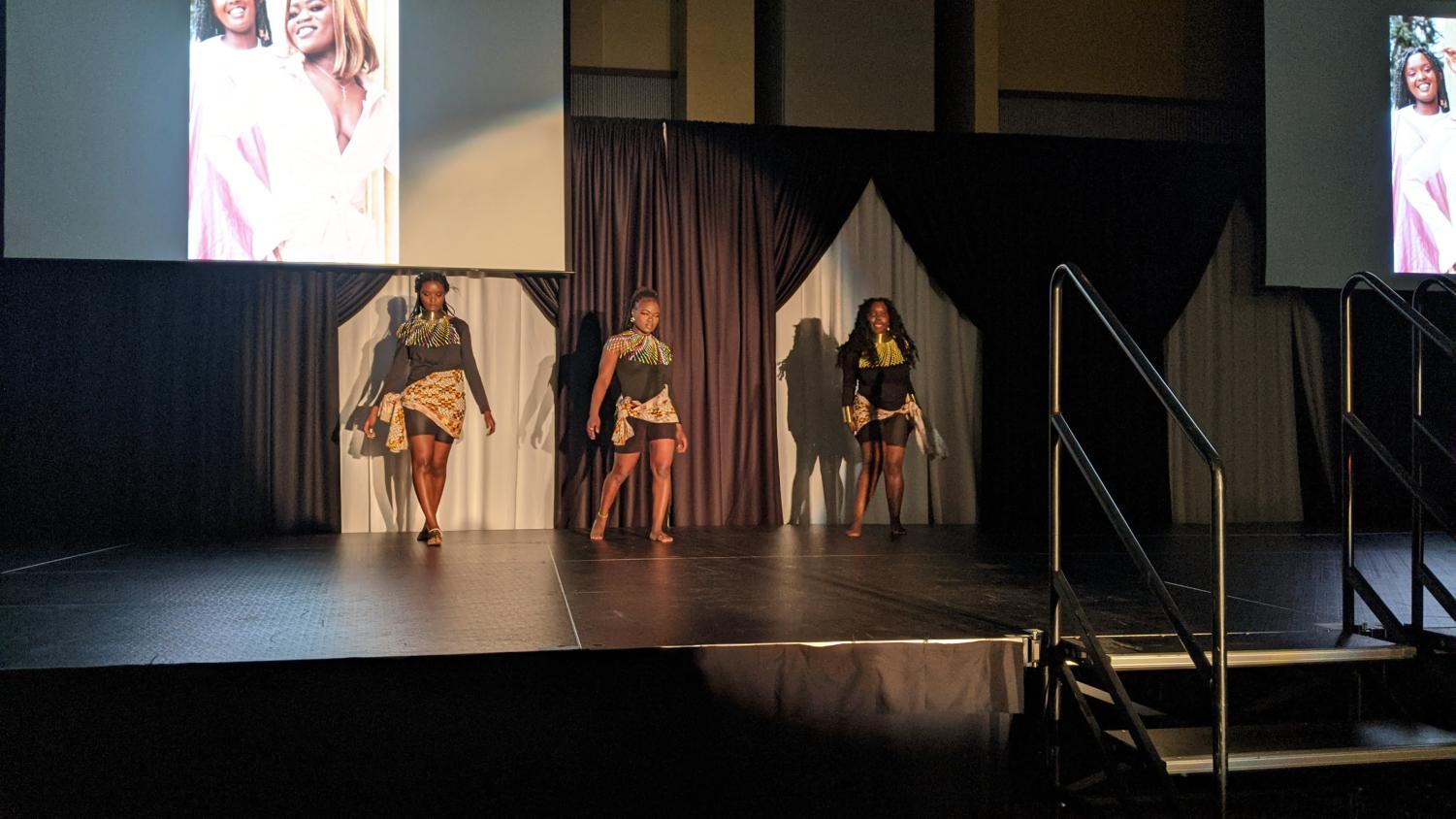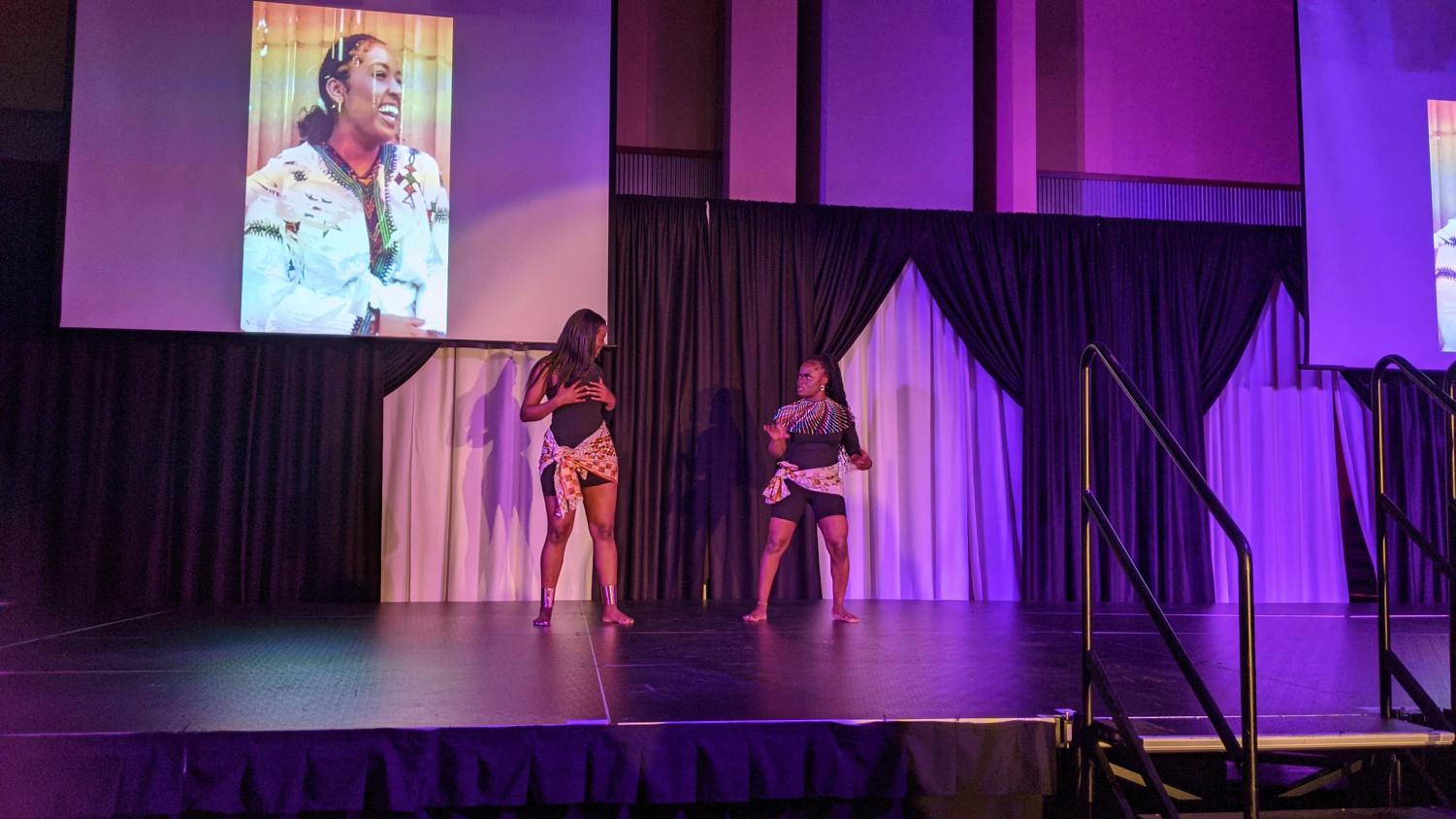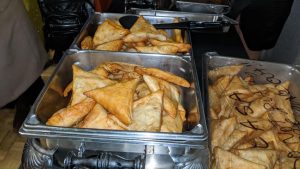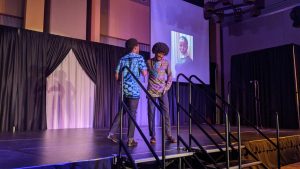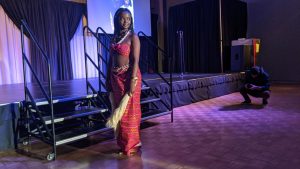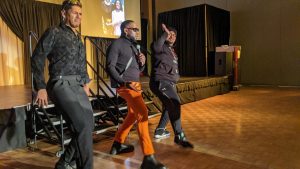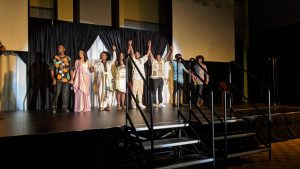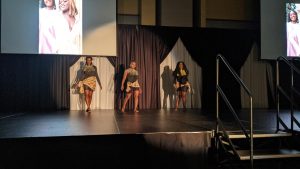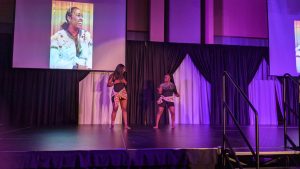African Night Ubuntu celebrates culture across the globe
May 11, 2022
An eruption of laughter resonated around the SURC Ballroom as two members of the audience weaved their way from their seats to the stage, bathed in purple lighting in front of the crowd.
Comedian and host of African Night Ubuntu, General Mutombo, invited the pair to have a dance-off to a thumping Afrobeats song, while each side of the audience judged who had the best moves and the DJ accented each joke with alarm-like sound effects that ignited the room.
The event held on Saturday, May 7 was hosted by the Central African Student Association (CASA) for the first time since the start of the pandemic, and organizers said they wanted the night to be special.
“We went a bit extravagant which is what we wanted,” CASA President and sophomore in law and justice and political science Ibtisam Sivoy said.
Sivoy said African Night is a celebration of African fashion, traditions and culture.
“I want people to see the beauty of Africa the same way they see the beauty of Europe,” Sivoy said. “There is a lot unseen. I want people to be like, ‘I am going to vacation in Nigeria, I’m going to vacation in Ghana.’”
Marketing major and CASA representative Atong Miyar said the event is meant to extend a welcoming hand to African students and allow non-African students to better understand African cultures. Miyar said the event was very formal and the theme was “Ubuntu.”
“Ubuntu translates loosely to ‘I am because you are.’ It means to unite us essentially,” Miyar said. “One thing about African culture that we all have in common is we like to boom big. Always … Everything from your dress, to the music, everything has to be tip-top shape.”
Impact of African Night
This event included a fashion show, a short play, photo opportunities, a red carpet, a full banquet of food, live music, poetry and dances while the audience screamed.
Catherine Lumeya, a senior in public health who helped plan the event, said her favorite parts of the evening included the emcee and his entertaining jokes, as well as the performances.
Victoria Dennis, a senior in psychology, choreographed over a dozen dance pieces for various students to perform.
“I want to show them that all the nights of us coming together, practicing over and over and over … everything was worth it,” Dennis said. “You can accomplish anything that you set your mind to.”
Dennis said she feels African Night is important because it allows Africans to come together in a safe space.
“To know that we got each other, this group of people will always be there to guide you, you can come and express yourself and there’s no judgment, it’s very important to see that on a college campus mostly full of white people,” Dennis said.
Ellensburg has little to no African eatery options. According to Miyar, the ability to eat African cuisine allows her to feel in touch with her roots. The menu included puff-puffs, little balls of dough covered in powdered sugar, and beef and vegetable samosas among other dishes.
“The foods were chosen because we wanted to touch base around the continent,” Lumeya said. “We thought of food that we can find everywhere, samosas can be found everywhere around Africa. The beef, although it was cooked in east African style, you can find [it] in different countries. The rice you can also find in different countries, but it was mostly west African.”
African Night exemplified the values within an array of African cultures present in this community.
“I can’t really find that touch of culture around here,” Miyar said. “By having African Night, I get to see a touch of my culture being showcased whether it might not be mine specifically, but it’s someone else’s I can still relate to.”
Community engagement
Sivoy said she hoped this event showed the other side of Africa that people may be unaware of because it is not often depicted in the media.
“When people think of Africa, they think poor,” Sivoy said. “They think Africa is desert or there are no cars, nothing fun to do. I want people to know what we do, our traditions. I want people to know what we do when somebody loses someone. It’s the whole African continent losing someone.”
According to Miyar, African cultures are less individualistic than western cultures.
Public health major and CASA Vice President Anderson Nsabanga said African Night is important because it brings African students together with people of all backgrounds.
“I want to make African students proud of who they are and where they come from,” Nsabanga said.
Everyone interested in attending CASA events was welcome to attend and appreciate African culture, according to Nsabanga.
According to freshman in psychology Gwendolyn Perry who attended the event, African Night lifted her spirits and served as an opportunity for those who haven’t had as much exposure to Africa.
“It introduces people to different cultures and makes diversity less intimidating for people who haven’t experienced as much diversity in their home life,” Perry said. “It’s very educational and fun. People can experience it firsthand.”

